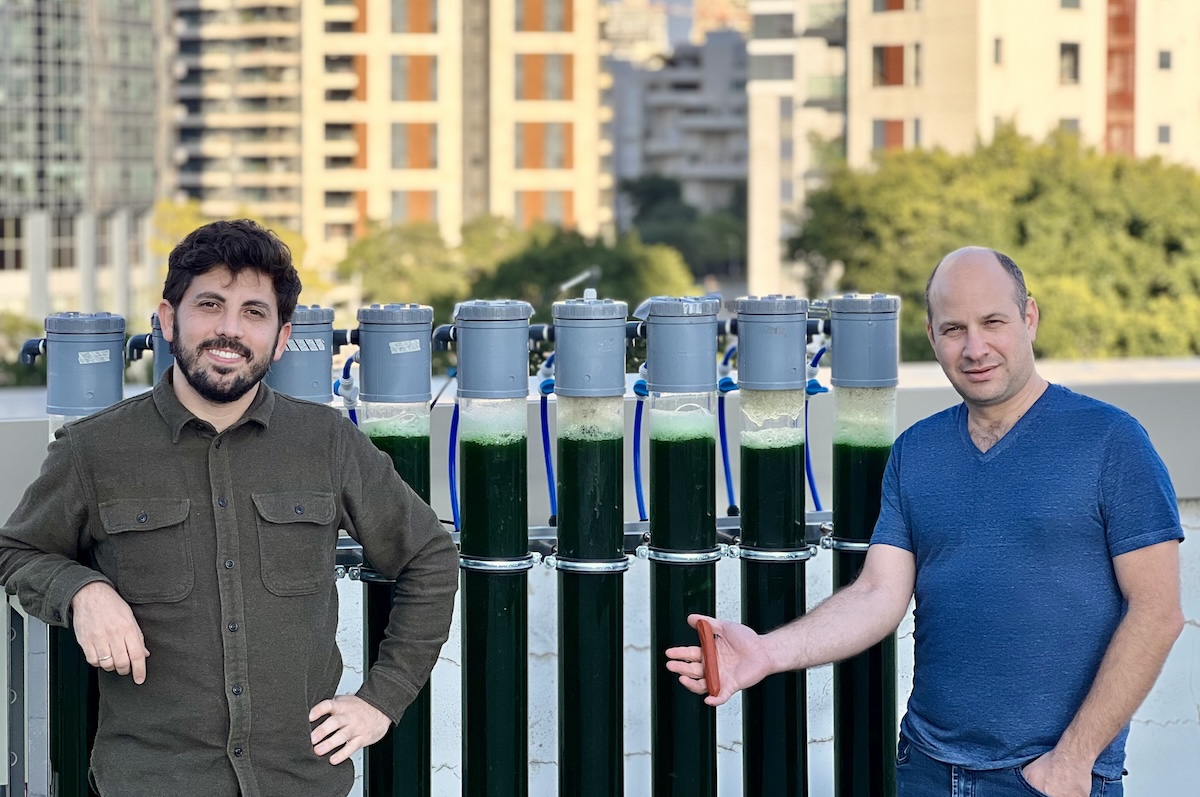One of the challenges for alternative proteins, particularly plant-based, is developing a product that mimics the taste of traditional meat.
Many startups have taken on this challenge. But the co-founders of Ingrediome, an Israeli food tech startup and alum of SOSV’s Indie Bio incubator program, say they are inventing better-tasting lab-grown protein that’s up to 10x less expensive to produce.
Of course, one caveat is that their product won’t solely be plants. The company is making “hybrid meat, dairy and eggs” it says, by combining traditional animal proteins with plant-based ingredients.
Some say the absence of fat in products is what causes the taste problem. But Ingrediome’s co-founders say it’s the texture of alternative proteins that’s the real culprit. Texture is a result of the way the fats, proteins and water are combined.
Aviel Even and Michael Kaholi, who founded the company in 2022, hope to address texture by developing recombinant animal matrix proteins made from carbon dioxide to make alternative meat and seafood. Recombinant proteins are those that are manipulated so they can produce in larger quantities.
“We use our meat proteins, oils, water and spices to get to our formulation, and that allows us to create a clean-label product,” Even told TechCrunch. “This much more faithfully replicates the way the actual meat cooks. Our meat proteins cook in the same manner, the same temperature range, etc. The nutritional values are very similar because we replicate what you would find nutritionally, at least in terms of protein.”
Making the proteins involves copying the genes responsible for making a variety of animal proteins, then teaching microorganisms how to make them using carbon dioxide from the air and natural sunlight as the feedstock. Their production environment involves photobioreactors located on the roof of their office.
By using microorganisms that eat CO2 and sunlight as their feedstock in the photobioreactors, Ingrediome will be able to more affordably scale a lab-grown meat operation, Even and Kaholi say. Production costs have been a big inhibitor preventing more alternative-protein startups from bringing their wares to market. These founders say their production method is up to 10x less expensive than precision fermentation, another popular method for making cultivated meat.
Signed contracts
At two years old, Ingrediome is still pretty early, and it will be at least two more years before it can manufacturer enough product to sell to traditional meat companies. Still, its founder says the company has made fast progress. It has engineered four out of the five proteins it is targeting to produce its CO2 bacteria and algae, they say, and also cultivated two of those proteins to 100 liters. It also has successfully created prototypes of its meat ingredients.
The company has already signed with a European ingredient company for an 18-month collaboration and has a joint R&D agreement with an Israeli deli company and a letter of intent toward a commercial partnership with another company.
Ingrediome closed $2.46 million in funding to date toward engineering that fifth protein and scale to 1,000 liters of its bacteria for producing meat. The investment came from an investor group that included SOSV, Siddhi Capital, Meach Cove Capital, Beyond Impact and Alumni Ventures and Genesis Consortium.
Up next, the company plans to submit a GRAS (generally recognized as safe) notice with the U.S. Food and Drug Administration. It’s a designation given to companies making substances for food.
“We’re scaling up to making 300 liters of bacteria per year, but our next phase is 1,000 liters, though 20,000 liters is not far away,” Even said. “I think we can get there around the end of 2025 or the beginning of 2026 and be able to make thousands of kilograms of meat per year.”
Investors salivate over food tech companies perfecting precision fermentation































Comment